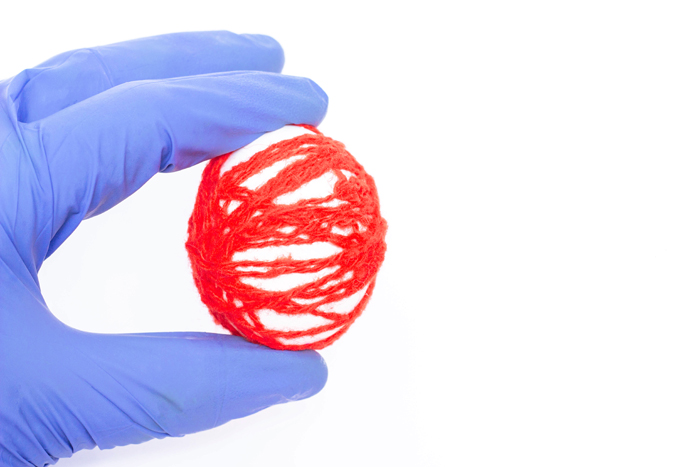Varicocele Treatment in Sadashiv Peth, Pune
A varicocele is a condition in which the veins within the loose skin bag holding your testicles get enlarged. It is similar to the varicose veins that appear in your leg. This condition can lead to decreased sperm quality and low sperm production resulting in infertility. However, in some cases, it might not affect sperm production, but cause your testicles to shrink or fail to develop normally. Fortunately, they are easy to diagnose and might not even need treatment. But, if they are causing symptoms, you might have to get surgery. In simple terms, varicocele is the enlargement of veins presents inside the scrotum.

Types/Classification
There are two types of varicoceles:
- Pressure type - In this, the spermatic vein gets filled up with blood resulting in grade I varicocele.
- Shunt type - In this, the severe buildup has caused damage to the spermatic vein as well as other veins resulting in grade II or III varicocele.
Symptoms
In most cases, a varicocele won’t produce any signs or symptoms. Only in rare cases does it show any symptoms which might include the following:
- Pain varies from dull discomfort to sharp
- Pain increase with physical exertion or standing, especially over a long duration
- Pain worsening over the day
- Impaired fertility
Over time, your varicoceles will enlarge and become noticeable. Some describe it as a ‘bag of worms’. This condition can also cause a swollen testicle, which is mostly on the left side.
Causes
Your spermatic cord is responsible for carrying blood to and from the testicles. There isn’t any exact cause of the condition. However, many believe that it is created when the valves inside the veins of the spermatic cord somehow abrupt the proper flow of blood. The resulting backup can cause the veins to dilate or widen resulting in damage to the testicles and worsened fertility.
When to see a doctor
Since in most cases, there are no symptoms associated with varicoceles, no treatment is required. It might get discovered during a routine physical exam or a fertility evaluation. However, if you notice any of the following, you should call 1860-500-2244 to book an appointment immediately:
- Swelling or pain in the scrotum
- A mass on the scrotum
- Testicles of different sizes
- Had varicocele before
- Having problems with fertility
Request an appointment at Apollo Spectra Hospitals, Pune
Call 1860-500-2244 to book an appointment
Risk factors
There are no significant risk factors that might lead to varicocele development.
Preparing for the surgery
Here are a few steps you need to take to prepare for the surgery for your varicocele:
- Inform your doctor about the medications you are taking
- Take prescribed medications as directed by the doctor
- Shave the treatment area
- Avoid eating or drinking for eight to twelve hours before the procedure
- Take a bath before the procedure
- Arrange for transportation and care
- Ask your doctor for aftercare instructions
Complications
In some cases, a varicocele might lead to the following complications:
- Atrophy (shrinkage of the affected testicle)
- Infertility
Prevention of varicocele
Varicocele can’t be prevented. Even though it doesn’t happen to all men, they are fairly common. This is because while they are in puberty, their testicles grow quickly and must have more blood delivered.
Remedies
Here are a few remedies that can help you with the varicocele:
- Avoiding certain activities that might trigger pain or discomfort
- Wearing a jockstrap or tight-fitting underwear to ease symptoms
- Applying cold packs
- Taking over-the-counter medications like ibuprofen or acetaminophen
Treatment
In most cases, you won’t need any treatment for varicocele. However, if it causes pain, infertility, or testicular atrophy, you might have to seek treatment. The aim of the surgery is to shut off the affected vein and redirect the flow of blood through normal veins. Here are some of the repair methods:
- Open surgery - In this, the surgeon approaches the affected vein through the groin by making an incision below the groin or in the abdomen.
- Laparoscopic surgery - In this, the surgeon uses a laparoscope to repair the varicocele.
- Percutaneous embolization - In this, a tube is inserted into the vein through the groin or neck. Then, the doctor releases a solution or coils that causes scarring and creates the blockage.
Conclusion
If you are worried about your fertility, you can talk to your doctor about which surgery might help treat varicocele and improve the chances of you having a child.
Veins have valves to ensure that the blood flow is in the proper direction. However, if the valves of the testicular vein aren’t working properly, the blood accumulates in the scrotum resulting in varicocele.
Yes, they are very common, but not dangerous. In fact, varicoceles in many men go unnoticed throughout their life.
Yes, the three main problems associated with varicoceles are scrotal discomfort, decreased testosterone production, and impaired fertility.
Symptoms
Our Top Specialities
NOTICE BOARD
CONTACT US
CONTACT US
 Book Appointment
Book Appointment


.svg)
.svg)
.svg)
.svg)








